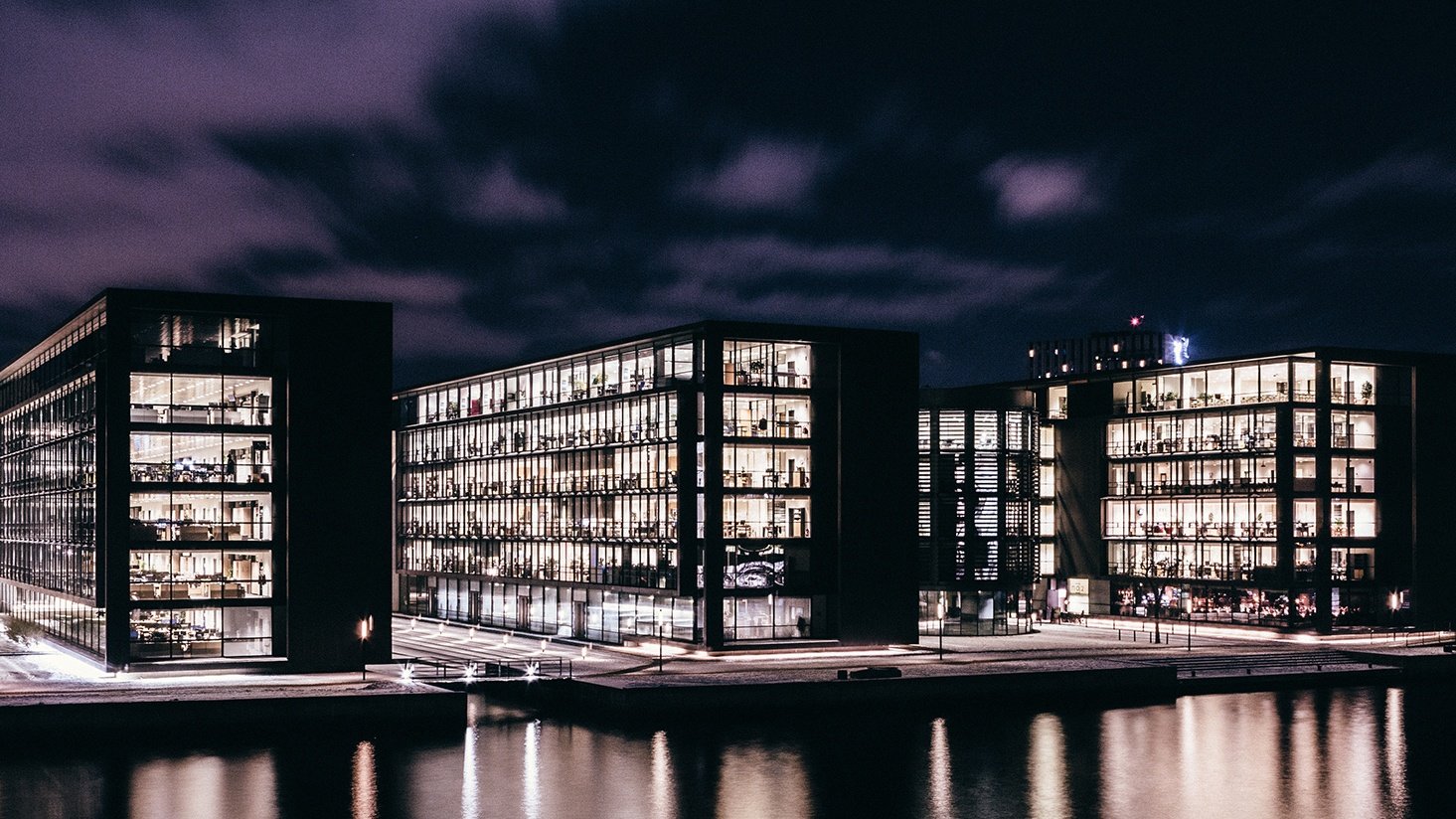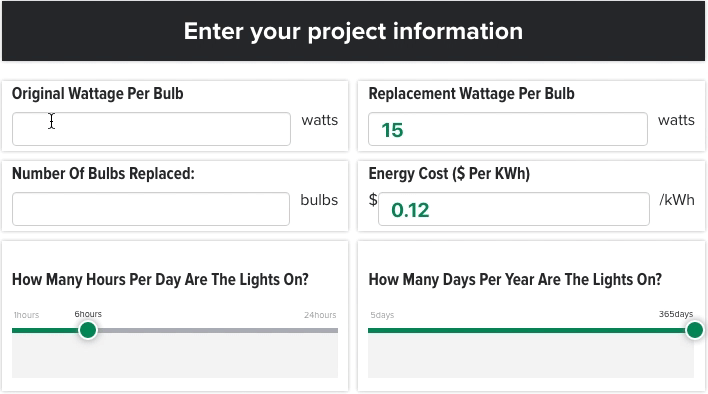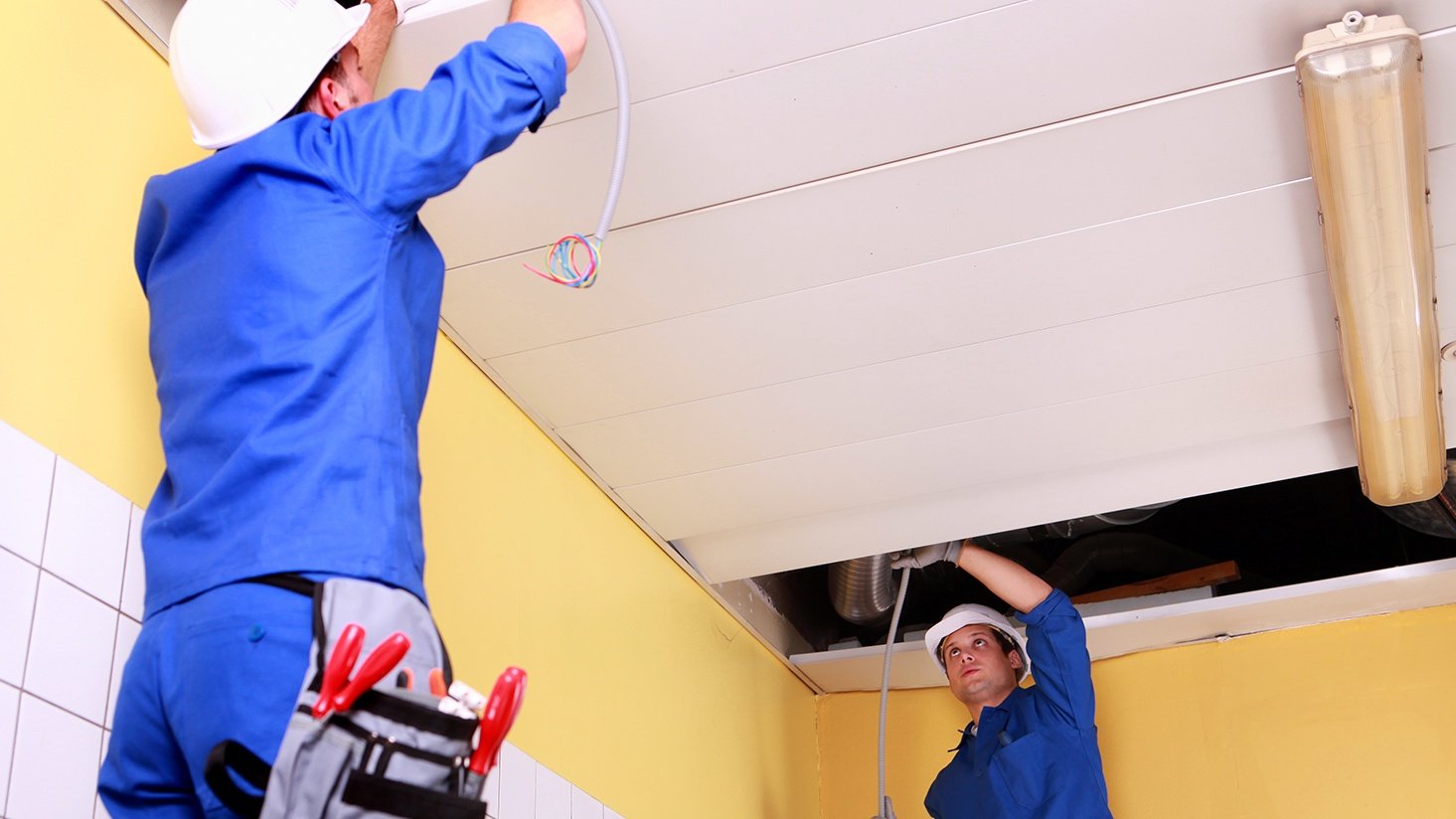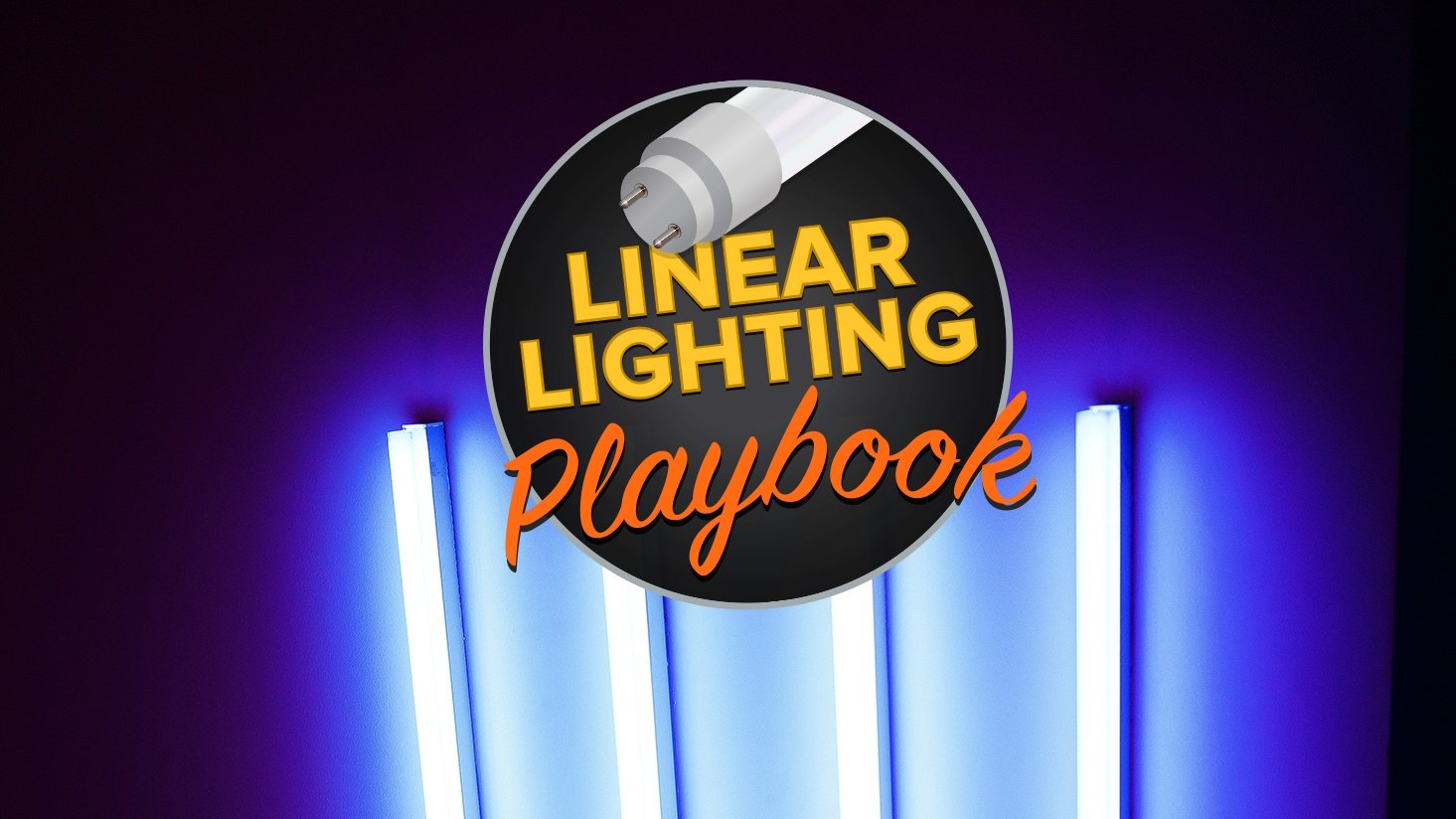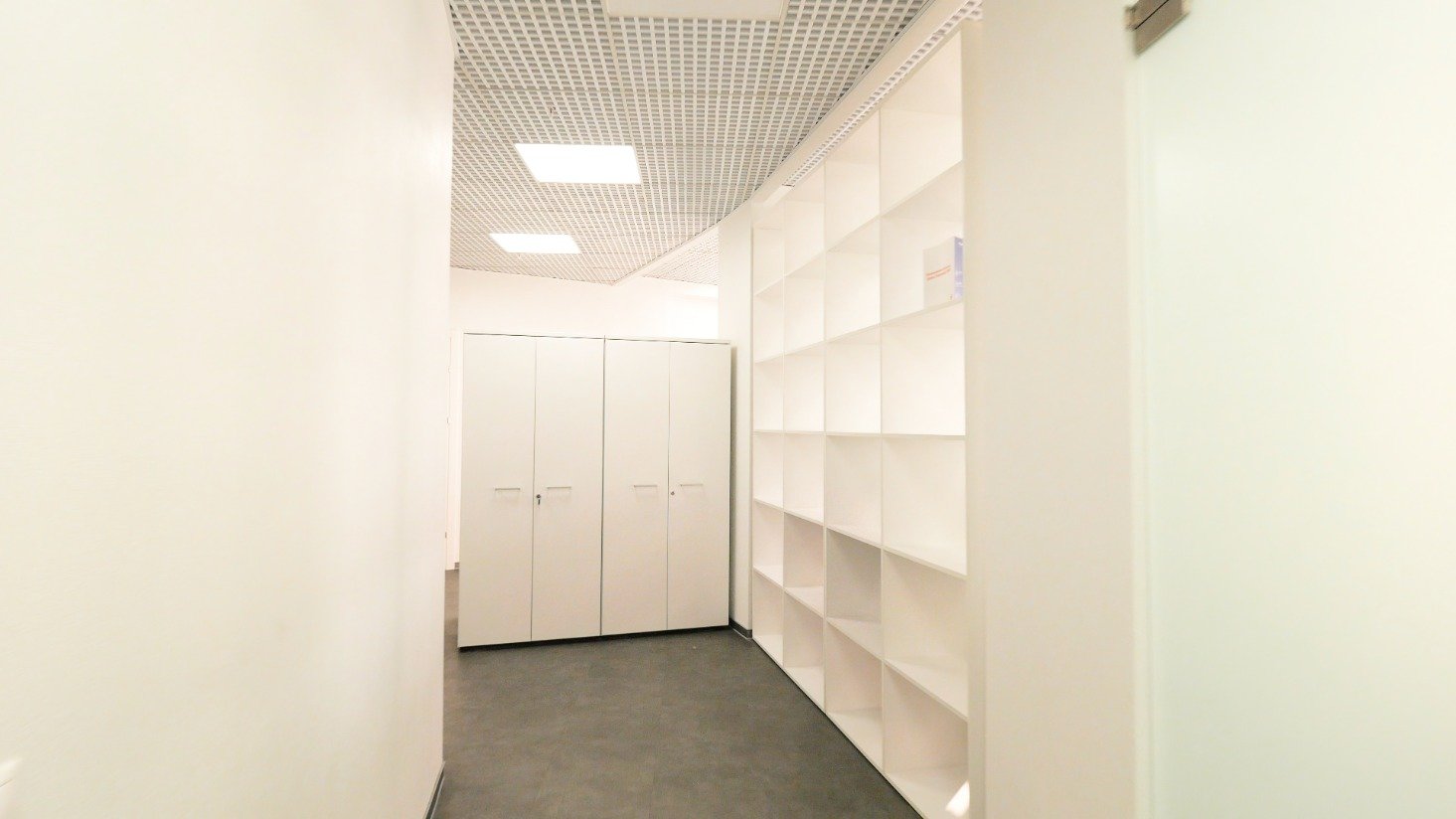Five questions to ask if you're considering LED lighting for your commercial office
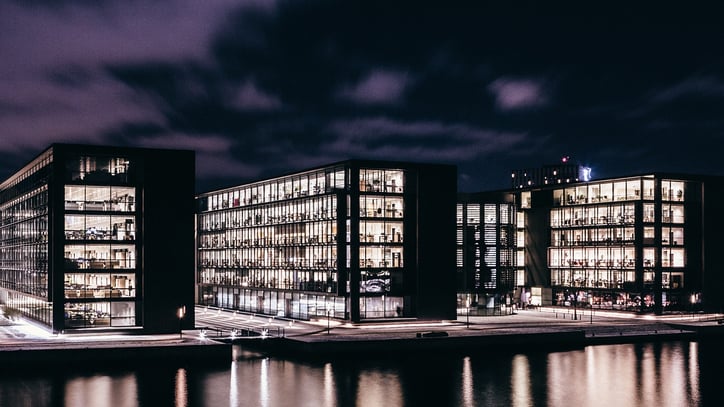
We’ve written a fair amount on when the right time is to upgrade to LED. It seems like this is one of the most charged questions in lighting today with strong opinions on both sides of the spectrum.
Some pragmatists look at the cost of long-life fluorescent – both in terms of efficiency and low materials cost – and recommend a conservative approach to retrofitting to LED. Heavy proponents of
So what’s the right approach for commercial offices?
Our goal is to help our customers be successful, which can look different for different needs. In evaluating lighting products and the right fit, we first try to understand our customers’ goals. Here are a few things to consider:
1. Is your primary goal energy efficiency?
Energy costs represent approximately 85 percent of the overall cost of traditional lighting, so it’s common for improved energy efficiency to be a top goal for our customers. When it comes to improving energy costs, lighting is a natural pick because the calculations and results are relatively straightforward. You will gain the financial benefit of the reduction in wattage as you move to more efficient lighting.
Learn more about how to calculate energy savings and return on investment in our Ultimate Guide to Energy Savings.
How much will you save by moving from linear fluorescent to linear LED? In general, your wattage savings is 50-70+ percent by retrofitting from fluorescent to LED. The question is, how quickly will that investment pay off? You can use our lighting retrofit calculator to see how the numbers stack up for your building.
2. Is your primary goal reducing your operating budget?
Operating budget is another major factor to consider when evaluating LED. The reality is that linear fluorescents are still a good option when it comes to your operational budget. The materials cost for fluorescents isn’t bad, and they carry a long life rating. The lifespan can range from 20,000 hours to more than 80,000 hours (longer than LED, if you have the right kind of ballast). As a result, you could get three to ten years of life from an average linear fluorescent if you burn them 18 hours a day.
So how does LED stack up when it comes to your operating budget? It depends.
3. Is your primary goal ease of maintenance?
Let’s face it. Some light bulbs are a pain to change. How about those high ceilings over fancy, imported marble tile? Or maybe cove lighting that you have to be a contortionist to reach? If you are operating with standard 20,000 or 30,000-hour linear fluorescents, you will get longer life – and fewer bulb changes – if you move to LED.
If you're operating a tight budget (see No. 2 above), you may consider an ultra long-life linear fluorescent or only
4. Is your primary goal improving the visual appeal of your space?
As innovation around LEDs
Download our Guide to CCT and CRI here
When it comes to linear applications, the high color quality of LED lighting may be a way to add more value to your tenants and employees. This isn’t a common primary goal, but it’s worth considering.
5. Is your primary goal sustainability or social responsibility?
LED lighting carries significant environmental benefits. In addition to the energy efficiency gains explained above, LEDs are mercury-free and do not require recycling like fluorescent products. Many of our clients are also very interested in gaining LEED points for their office building by installing LED lighting. If sustainability is a goal for you, LEDs should be a top consideration.
As you consider these questions, you can start
Scenario No. 1:
“I’m a chief engineer at a 50-story office building in a high-rent district of the city. Our tenants are looking for high-end office space and they value sustainability and quality. My property manager is interested in long-term efficiency and differentiating our property from others. He’s willing to make an investment if the payback is under two years. In fact, he’s mentioned LED lighting to me a few times wondering if we should consider it.”
Our recommendation:
LED is probably going to be a top consideration because of the importance is sustainability and the interest in efficiency. Additional benefits like light quality will also help to differentiate your property. It’s not uncommon to find linear LEDs with a sub-two year payback, so you’ll probably want to consider a retrofit.
Scenario No. 2:
”I’m a chief engineer responsible for multiple properties, and my time is split between them. We operate a few three to 8 story office buildings. Time always seems to be short, as my staff is running between plumbing, HVAC, and many other requests. When burned-out light bulbs come to our attention, it’s simply a nuisance – especially when they’re a pain to change. I see our energy costs, but I’m not directly responsible for them, and our operating budget for materials is very tight. I’ve heard about LED, but I can’t imagine having the budget to pay for a retrofit.”
Should you go with LED tubes for your office lighting?
Candidly, LED might not be the right fit for you right now. The relatively low cost of ultra long-life linear fluorescent might be something to help with the pain points you’re experiencing, understanding that you may need to replace your ballast to get the full benefit. You may also be able to gradually work LED into your property by purchasing a few bulbs per month or quarter. You’ll definitely want to consider lighting updates in the hard-to-maintain areas first.
As you can see, there simply isn’t a one-size-fits-all approach to retrofitting to LED lighting. Listen to the voice of reason in the midst of the complexity and charged opinions in the industry. We’re here to help as you weigh your options.
Read more:
- Common light bulbs and LED upgrades for commercial offices
- Complete guide to commercial office lighting
